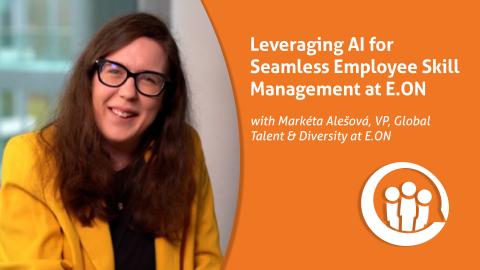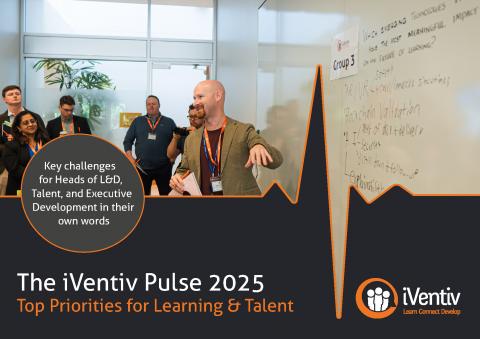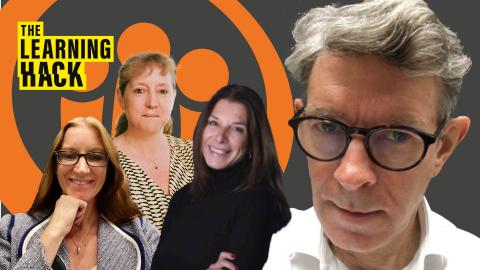In this interview with Jen McCartney, Director of Diversity, Inclusion, Equity and Belonging at PayPal, Jen talked about defining, unpacking and addressing unconscious biases in leadership practices. We asked Jen about how PayPal have approached the topic of unconscious bias in their workforce, and the importance of managers and leaders in identifying their own unconscious biases. Based on her extensive experience in this area, Jen advises on how to tackle unconscious bias at an organisational level, and reveals the things she would do differently if she were to start her journey over.
How do you define unconscious bias and what’s the role of talent and leadership development in addressing it?
Jen talks about unconscious bias as a complex concept rooted in the human brain's reliance on cognitive shortcuts to process information quickly. She says that these shortcuts, while essential for survival, can lead to biases, especially in matters requiring rational thinking. Unconscious biases often interact and reinforce each other, she says, making them challenging to define and address individually. Jen arguess that leadership development plays a crucial role in combating unconscious biases as leaders' influence and decision-making impact an organisation's culture and diversity efforts. As such, leaders should become aware of their biases, model inclusivity, and use metrics to measure progress continually.
Jen goes on to say that, in her view, it's vital to recognise that everyone has unconscious biases due to the brain's natural processes. Doing so, she advises, can open up discussions about addressing these biases without judgment. These biases are essential for quick decision-making but can be problematic in certain situations. While these biases are necessary, they inadvertently develop into biases related to people. Leadership development and continuous reinforcement are essential in the ongoing effort to address unconscious biases effectively, especially among senior leaders who may have carried these biases for some time.
How have you approached the topic of unconscious bias at Paypal?
At PayPal, addressing unconscious bias is seen as an ongoing journey that involves both top-down and bottom-up approaches. From the bottom-up perspective:
- The focus is on raising awareness without judgment.
- It's about helping individuals recognise that everyone has unconscious biases shaped by their background, culture, and experiences.
- She recommends tools like Harvard's Implicit Bias test to help employees identify their biases and be more conscious of them in various situations. This awareness encourages open conversations within teams.
Jen goes on to say that, from a top-down perspective:
- Data plays a crucial role: PayPal emphasises the importance of Diversity and Inclusion (D&I) data at the department or business unit level. This data helps identify opportunities and potential systemic biases. Leadership support is vital in reinforcing these concepts and keeping them alive.
- Digital resources and supplementary talking points for managers to use in team meetings, in her experience, help to encourage continuous learning.
The key is not just a one-time effort but a constant and continuous focus on the topic. Monitoring data and understanding how biases may impact hiring, team management, and decision-making are crucial. The overall goal, Jen mentions, is to promote awareness and create real change within the organisation, rather than just ticking boxes for diversity metrics. By making managers and leaders aware of biases and their effects, PayPal aims to foster genuine diversity and inclusion.
Is it difficult for managers and leaders to identify their own unconscious bias?
When talking about the identification of our own unconscious biases, Jen says that it can be challenging, primarily due to initial defensiveness and personalisation when confronted with diversity and inclusion or unconscious bias training. She goes on to say that as individuals recognise that biases are part of the human condition, however, they become more open to the process. Identifying these biases isn't necessarily difficult, but consistently addressing them in daily decision-making can be a more significant challenge.
For global organisations, it's crucial to understand that a one-size-fits-all approach does not work in the context of diversity and inclusion. Different regions and cultures have unique nuances and expectations regarding diversity. Localisation of strategies and training materials is essential to ensure they resonate with the local culture and environment. This localisation helps individuals take diversity and inclusion efforts more seriously.
Even within smaller geographic areas like the UK and Ireland, she says, there can be significant cultural differences, such as religious influences. However, Jen argues that these differences are also opportunities for diversity of thought and greater innovation rather than sources of conflict. Effective diversity and inclusion efforts involve framing the discussion positively and consistently reinforcing these principles throughout an organisation. To instill these principles from the get-go, Jen suggests that new employees should encounter and embrace these principles from day one to integrate them into the organisation's DNA.
What advice would you give to others who are trying to tackle this topic on an organisational level? What would you do differently if you were to start your work again?
Jen's advice for tackling unconscious bias at an organizational level includes:
- Starting with data to identify opportunities and understanding that diversity, equity and inclusion (DEI) efforts should be part of the mission, vision, and values of the organisation.
- Recognising allyship in performance reviews reinforces DEI as part of the organisation's culture. Supporting managers in intervening when they witness microaggressions or exclusion is essential.
- It's crucial to infuse DEI training from day one for new employees and provide leaders with practical strategies for daily implementation. Strategies can include taking note of the needs of individuals in minority groups, inviting quieter team members into conversations, and asking open-ended personal questions to foster connections.
Reflecting on her own journey, Jen emphasises the importance of:
- Self-awareness regarding biases
- Creating a psychologically safe environment for open discussions
- Listening to diverse voices and perspectives is key to understanding opportunities for greater support
- Diversity of thought is as vital as diversity of backgrounds in designing effective processes for addressing unconscious bias
Jen concludes by saying that the benefits of diversity and inclusion extend beyond organisational performance, positively impacting employee retention, satisfaction, and belonging. Leaders play a significant role in creating inclusive environments where everyone's voice is valued. Ultimately, D&I efforts lead to a significant lift in KPIs and promote a culture of innovation and belonging.
Jen McCartney is a Learning & Development professional specialising in Curriculum Design and Delivery & Measurement of soft skill and eLearning programs. She has extensive experience designing programs for multicultural applications and is particularly interested in psychological aspects of learning and applications in training. Jen has broad experience of Leadership Development and Coaching and specialises in a number of things including Leadership Effectiveness, Training Delivery and Team Management.










